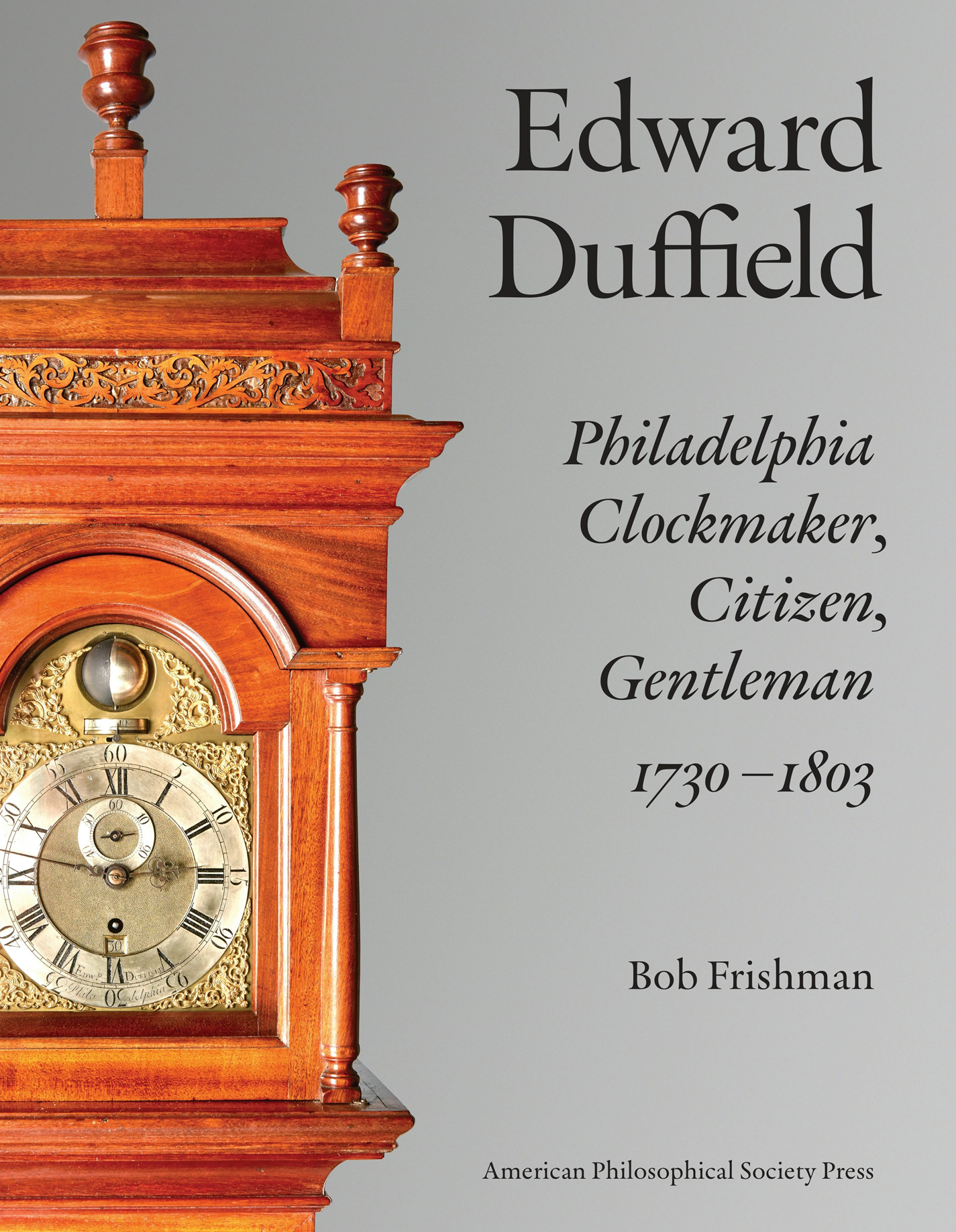Book Launch: Edward Duffield, Clockmaker
Benjamin Franklin Hall
427 Chestnut Street
Philadelphia, PA 19106
Wednesday, September 18, 2024
6:00 p.m. ET (reception at 5:30 p.m.)
Free and open to the public.

The American Philosophical Society Press will host a launch for the first book length study of Philadelphia clockmaker Edward Duffield on September 18, 2024.
Author Bob Frishman will discuss the life and work of Edward Duffield (1730–1803), a colonial Philadelphia clockmaker whose elegant brass, mahogany, and walnut timekeepers stand proudly in major American museums and collections. Duffield, unlike other leather-apron ‘mechanics,’ was born rich and owned a country estate, Benfield, and many more properties. He was deeply involved in civic and church affairs during crucial years in American history—his lifelong close friend, Benjamin Franklin, was staying at Duffield’s Benfield estate when Franklin, Thomas Jefferson, and John Adams first discussed the Declaration of Independence. Sally, Franklin’s daughter, brought her family there for extended periods during the Revolution and Franklin’s wife, Deborah, was best friends for 50 years with Duffield’s mother-in-law. Duffield was even one of three executors of Franklin’s will.
In this lavishly illustrated book, Bob Frishman catalogs and describes 71 known Duffield clocks and instruments and reveals how, during the mid-18th century, they largely were not fabricated from scratch by isolated individuals. He contends that Duffield and his fellow clockmakers were not furniture-makers; they were mechanical artisans whose complex metal machines rang the hours and steadily ticked inside wooden cases made by others. Existing books on Philadelphia clocks have focused on these artifacts as furniture, including their woodwork, cabinetmakers, and decorative aspects. However, Frishman, a professional horologist for nearly four decades, brings his vast expertise to bear on this first comprehensive study of Duffield’s life and work.
Signed copies of the book will be available for a special launch price of $40, a savings of $20 off the cover price.
